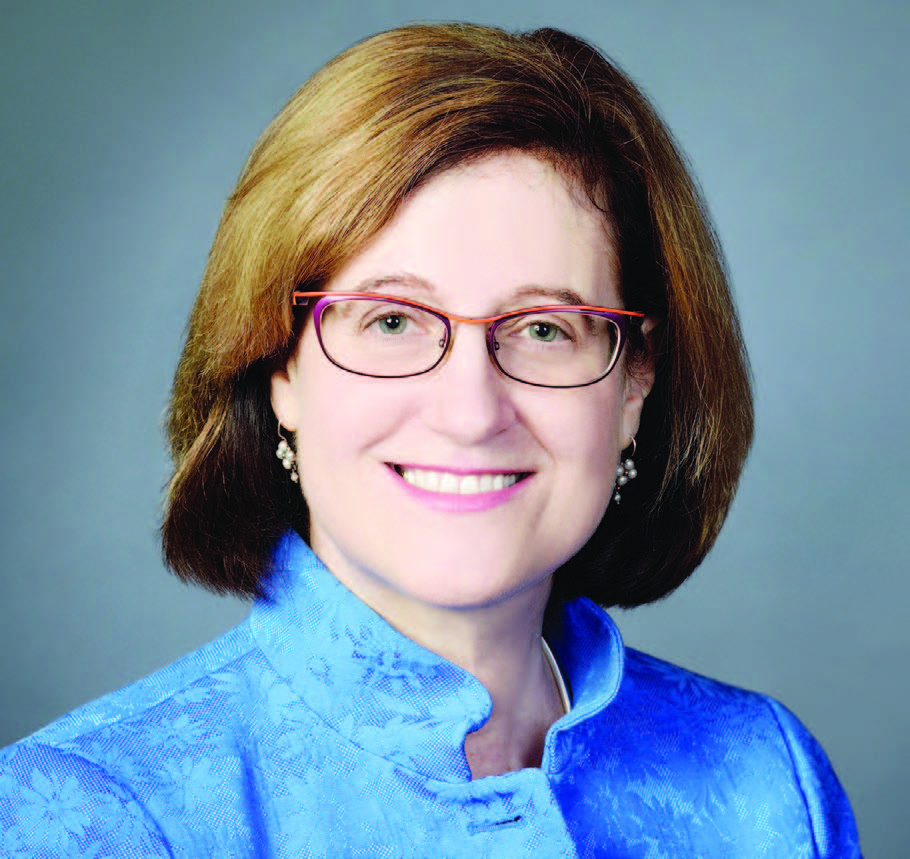
Wendy Rubinstein, MD, PhD, FACP, FACMG
A new global resource that includes data on thousands of inherited variants in the BRCA1 and BRCA2 genes will help inform the understanding of cancer risk. Wendy Rubinstein, MD, PhD, FACP, FACMG, Deputy Medical Director of CancerLinQ, LLC, a wholly owned nonprofit subsidiary of ASCO, served as a coauthor of a paper published in PLOS Genetics1 detailing the development of the new resource, BRCA Exchange.
The BRCA Exchange was created through the BRCA Challenge, a long-term demonstration project initiated by the Global Alliance for Genomics and Health (GA4GH) to enhance sharing of BRCA1/BRCA2 data. The resource, available through a website and a new smartphone app, allows clinicians to review expert classifications of variants in these major cancer predisposition genes as part of their individual assessment of complex questions related to cancer prevention, screening, and intervention for high-risk patients.
Certain inherited variants in BRCA1 and BRCA2 can increase the risk of breast, ovarian, and other cancers by varying degrees, whereas other variants are not associated with disease. Clinicians and patients need to know whether a given variant is likely to be pathogenic and how likely a pathogenic variant is to cause cancer (penetrance). Until now, the available data on the inherited variants in these genes were not aggregated in a comprehensive way.
The BRCA Exchange data set comprises information from existing clinical databases—Breast Cancer Information Core, ClinVar, and the Leiden Open Variation Database—as well as population databases and data from clinicians, clinical laboratories, and researchers worldwide. It currently includes more than 20,000 unique BRCA1 and BRCA2 variants. More than 6,100 variants in the database have been classified by an expert panel—the Evidence-based Network for the Interpretation of Germline Mutant Alleles (ENIGMA)—and approximately 3,700 of these variants are known to cause disease. The BRCA Exchange pools variants from data resources worldwide, which should lead to the inclusion of rare variants that are only occasionally observed.
With a single-point-of-access website (brcaexchange.org), the BRCA Exchange provides information on these gene variants to clinicians, researchers, data scientists, patients, and patient advocates. It also serves as a demonstration project showing that this kind of comprehensive data sharing—requiring collaboration across hundreds of organizations, the establishment of an infrastructure to house the information, and the development of data-sharing protocols—is possible for other cancer predisposition genes and, indeed, for genes associated with other diseases.
Next steps for the project include collaboration with additional global data generators and data holders, continued technical development, and increased engagement with patients and patient advocates worldwide.
Prior to joining CancerLinQ LLC, Dr. Rubinstein held several roles at the National Institutes of Health (NIH), including Senior Scientist; Chief, Medical Genetics and Human Variation National Center for Biotechnology Information (NCBI); and Director, NIH Genetic Testing Registry. In her time as Chief of Medical Genetics and Human Variation at NCBI, Dr. Rubinstein was a significant contributor to the ClinVar database—one of the existing clinical databases included in BRCA Exchange.
The 5-year BRCA Challenge project was funded in part by the National Cancer Institute, a part of the NIH, and through the Cancer Moonshot. ■
© 2019. American Society of Clinical Oncology. All rights reserved.
REFERENCE
1. Cline MS, Liao RG, Parsons MT, et al: BRCA Challenge: BRCA Exchange as a global resource for variants in BRCA1 and BRCA2. PLOS Genet 14:e1007752, 2018.

